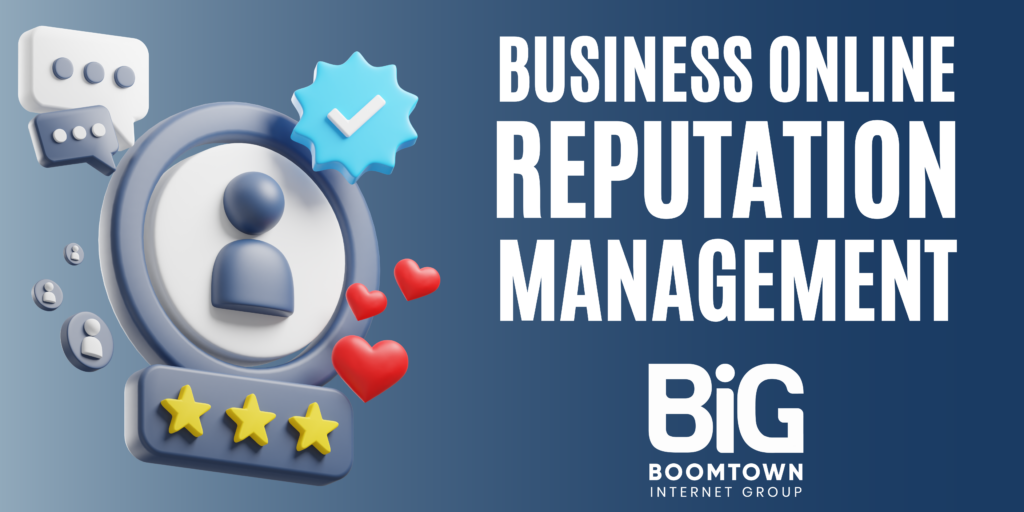WHAT IS ONLINE REPUTATION MANAGEMENT (ORM)?
Online Reputation Management (ORM)is the practice of monitoring, influencing, and shaping the online perception of a brand, individual, or organization. It involves strategies to address negative reviews, promote positive content, and engage with online communities to build trust and credibility with the public. ORM ensures that search results and social media reflect the desired reputation.
WHY ONLINE REPUTATION MANAGEMENT MATTERS
In today’s digital age, consumers rely heavily on online reviews and information before making purchasing decisions. They research products and services online before making a purchase, and they heavily rely on online reviews and feedback. A single negative review can have a significant impact on your sales, while a positive online reputation can be a powerful marketing tool. Here’s how ORM benefits your business:
- Builds Trust and Credibility: Positive online reviews and a strong social media presence show potential customers that you’re a legitimate and trustworthy business.
- Boosts Search Engine Rankings: Search engines like Google consider online reputation when ranking websites. A positive online presence can improve your search visibility, making it easier for potential customers to find you.
- Increases Customer Engagement: Engaging with customers online through social media and responding to reviews shows that you care about their feedback and experiences.
- Mitigates Negative Reviews: A proactive ORM strategy can help you identify and address negative reviews quickly, minimizing their impact.
MONITORING ONLINE REPUTATION MANAGEMENT AND NEGATIVE REVIEWS
The first step in effective ORM is understanding your online presence. Here’s how to keep track of what people are saying about your brand:
- Set Up Alerts: Use Google Alerts and similar tools to monitor mentions of your brand name, products, or services across the web.
- Social Media Monitoring: Actively track your social media channels for customer reviews and comments.
- Review Platforms: Monitor review platforms like Yelp, Google My Business, and industry-specific review sites.
- Search Engine Monitoring: Regularly search for your brand name and key terms to see what appears in search results.
HOW TO RESPOND TO NEGATIVE REVIEWS, COMMENTS, AND RATINGS
While negative reviews can be frustrating, they also present an opportunity to showcase your customer service skills. Here’s how to respond effectively:
- Respond Promptly: Don’t leave negative reviews hanging. Respond within 24-48 hours to show you take customer feedback seriously.
- Acknowledge and Apologize: Even if you disagree with the review, acknowledge the customer’s frustration and apologize for any inconvenience they may have experienced.
- Investigate the Issue: Take the time to understand the root cause of the negative review.
- Offer a Resolution: Work with the customer to find a solution that addresses their concerns. Be transparent about what you can and cannot do.
- Be Professional and Courteous: Maintain a professional and courteous tone even if the reviewer is upset. Avoid getting defensive or argumentative.
By responding to negative reviews in a timely and professional manner, you can demonstrate your commitment to customer satisfaction and potentially turn a negative experience into a positive one.
FINAL THOUGHTS ON ONLINE REPUTATION MANAGEMENT
Online reputation management is an ongoing process. By consistently monitoring your online presence, responding effectively to reviews (both positive and negative), and actively building trust with your audience, you can cultivate a strong and lasting positive online reputation. Remember, ORM isn’t just about damage control; it’s about building a brand that customers can trust and rely on.
In addition to the points above, here are some additional tips for success:
- Be Authentic: Don’t try to be something you’re not. Customers can spot inauthenticity a mile away. Be genuine and transparent in your online interactions.
- Be Patient: Building a positive online reputation takes time and effort. Don’t get discouraged if you don’t see results overnight.
- Be Consistent: Maintain a consistent brand voice and message across all your online channels.
- Measure Your Results: Track your online reputation metrics over time to see what’s working and what’s not.
By following these tips, you can develop a comprehensive ORM strategy that helps you build trust, attract customers, and achieve long-term success in the digital age.
Connect with Boomtown’s digital marketers today, who specialize in business online reputation management.


